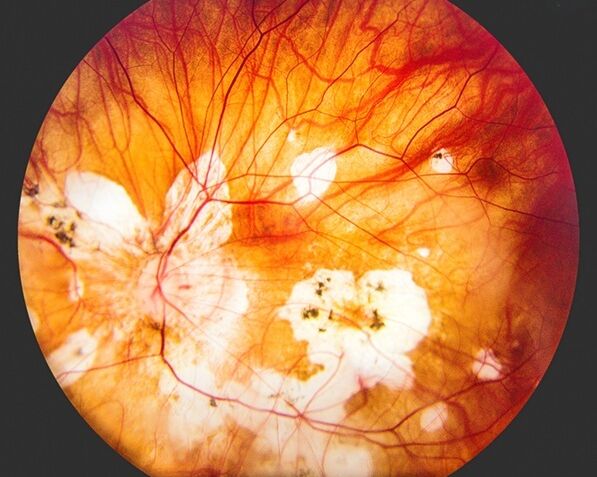Genomics England sets out vision for newborn genomes research pilot
- Genomics England sets out early thinking on how a research pilot will gather evidence on the benefits, challenges and practicalities of offering whole genome sequencing to all newborns
- Research will look at feasibility of screening for a larger number of childhood-onset rare genetic conditions in order to speed up diagnosis and access to treatment for affected children
- A public dialogue has shown support for use of genomics in newborn screening – providing that the right safeguards and resources are in place
- Programme will include preliminary exploration of potential life-course benefits of using genomic insights to enable “smart” wellness and healthcare
- Vision publication marks start of 18-month engagement and consultation phase with public and stakeholders before families are enrolled into pilo
Genomics England has announced its vision for a pilot research project to examine the potential for using whole genome sequencing in newborn health screening programmes to find and treat rare genetic diseases in newborn babies.
Download a copy of the Newborn Genomes Programme vision document (PDF, 5.5MB)
Funding for the pilot was recently announced by HM Treasury as part of a £5bn investment in healthcare research and development. The outcomes of the research pilot, expected to start in 2023, would then inform any decision by NHS England and NHS Improvement to extend the NHS’ offer of whole genome sequencing.
The pilot, which will be run in partnership with the NHS, will look for a set of childhood-onset genetic conditions, which may affect their health in early years, that we can do something about. Work has already begun to explore the types of genetic conditions that would be looked for, and Genomics England will be working with the rare disease community and clinical and scientific experts to develop principles for what conditions will be included.
Although rare diseases are individually rare, they are collectively common – with 1 in 17 people being affected by a rare disease at some point in their lifetime. In the UK this amounts to over 3.5 million people. It is therefore important that the NHS and other services provide this large and diverse patient population with the best possible care.
Around 80% of rare disorders are genetic in origin. 75% of rare diseases affect children and more than 30% of children with a rare disease die before their fifth birthday. Rare disease patients and their families can face a lifetime of complex care and living with a rare disease can also have a huge impact on education, financial stability, mobility, and mental health. They are often difficult to identify clinically, and so genetic and genomic testing has already become the main way of diagnosing these conditions.
Genomics England CEO Chris Wigley, said:
Our goal is to find ways of providing early diagnosis and care for children born with rare genetic conditions that have a severe and often life-limiting impact.
For many of these children, the best chances for them rely on quickly identifying them, and quickly providing them with care and treatment that can have a dramatic impact on their quality and length of life. The key is that early identification and diagnosis, so we believe that providing whole genome sequencing soon after birth has the potential to significantly improve diagnosis and access to treatments for rare genetic conditions.
Minister for Innovation, Lord Kamall, said:
Genomics is changing the future of healthcare, from detecting new variants of COVID-19 to enabling more targeted treatment of illness.
This innovative research pilot could truly change peoples’ lives and keep the NHS ahead of the curve in delivering state of the art care to those who need it.
The UK continues to lead the way in genomics expertise and this exciting collaboration with the NHS, GEL and the wider health sector could help pave the way for earlier diagnosis of rare conditions in children and faster access to the right treatment.
Genomics England Chief Medical Officer Dr Richard Scott said:
It is vital that we design the project in collaboration with as wide a range of people and organisations as possible. For many individuals with rare conditions and their families, whole genome sequencing has brought an end to the diagnostic odysseys that they had been on – providing more certainty and choice. It has demonstrated the life-changing potential of using genomic medicine in healthcare.
We want to build on these strong foundations. Considering our increased understanding of the links between the genome and health, as well as the analytical and healthcare capabilities we have already developed in WGS with the NHS, we believe now is the time to explore extending this life-changing potential to newborns.
Chief Scientific Adviser for the Department of Health and Social Care, Professor Lucy Chappell, said:
Medical research is saving lives across the world and pioneering projects like this will test the potential for whole genome sequencing to rapidly diagnose and treat children with rare diseases.
Building on the UK’s innovation and strong research foundation, this research pilot will work with a wide range of people and organisations to gather evidence on the potential benefits and challenges of offering whole genome sequencing to all newborns and support improvements to the NHS Newborn Screening Programme.
This is an very exciting step and an excellent example of collaboration across the sector. If the research pilot shows that this is feasible and beneficial, we will be able to diagnose rare diseases earlier, enabling faster access to treatment that will ultimately improve lives.
The programme will benefit from an NHS steering group chaired by Sarah-Jane Marsh, CEO of Birmingham Women’s and Children’s Hospital, to provide insight to the project as it develops and ensure that it can be translated to a clinical service if successful.
Ms Marsh commented:
Genomics is already transforming our healthcare system, helping us provide more personalised care, with so much more to discover. By creating the right service for offering whole genome sequencing for newborn babies, this groundbreaking programme will evaluate such an approach for its benefit and impact.
Having worked with children with rare diseases for over a decade, this really is a unique opportunity to add years to life, and life to years, whilst facilitating research to continually enhance care across all disease groups.
The pilot hopes to demonstrate real benefits for babies and their families, including timely diagnosis, quicker access to treatment, and better outcomes and quality of life. Plans are to sequence up to 100,000 babies initially, but ongoing analysis indicates that up to 200,000 babies may be enrolled to gain the necessary evidence: this will continue to be reviewed as we develop and implement the pilot.
The central focus of the programme will be health benefits for newborn babies. In parallel, however, Genomics England will explore the potential life-course benefits of participants having their genome on record to enable smart approaches to wellness and health.
This work will be done in partnership with a wide range of professional and public communities. It is likely that the pilot will not start until 2023, with today marking the start of an 18-month engagement and consultation phase with public and stakeholders.


